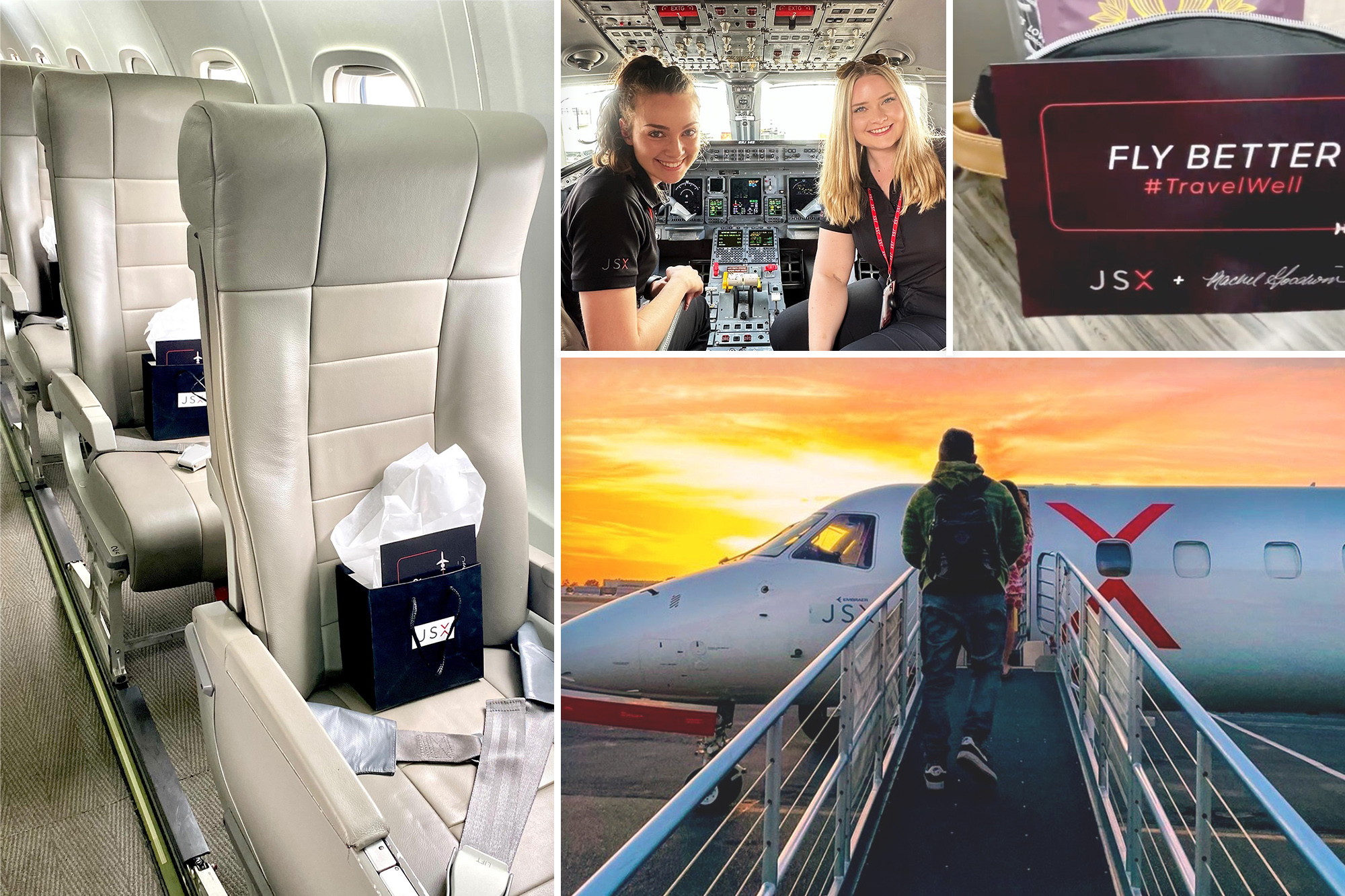
An airline company is offering the private jet experience at business-class prices — and it’s earning them plenty of industry enemies.
JSX, a Dallas-based carrier, is exploiting a loophole in US Federal Aviation Administration regulations that would allow the company to sell single-seat tickets for scheduled charter planes for affordable prices and much quicker security checks.
“I spent months without sleep, just looking at all the rules, looking for ways why it couldn’t be done,” co-founder Alex Wilcox told Bloomberg.
While charter planes are not subject to the same strenuous safety and security requirements as passenger planes with more than nine seats, FAA rules prevent them from specifying flight times or cities or selling single tickets.
To overcome the stringent rules, the entrepreneur created two companies that would work together: one makes flight schedules and sells tickets while the second flies the plane on specified routes at set times and dates.
The loophole also allows JSX to sell tickets at a much lower price point than private jet competitors.
“Every single person we talked to said, ‘No, you can’t do it,” Wilcox recalled. “So we did it.”
JSX has earned love and adoration from frequent fliers who can enjoy the luxury of skipping long Transportation Security Administration baggage-screening lines in place of bag swabs and weapon detectors.
The extra free time allows travelers the chance to spend more time in the cities they’re exploring, or to attend extra meetings on a work trip, Bloomberg reported.
That loophole, however, is what JSX’s competitors are targeting, claiming the company’s practices are unsafe.
“If you’re going to be a scheduled carrier, whoever you are, follow the rules for a scheduled carrier,” Southwest Chief Executive Officer Bob Jordan said in an interview with Bloomberg. “We have decades of proof that accidents have significantly declined and safety has significantly improved. Just follow that standard.”
Doug Parker, former American Airlines chairman and CEO, told the outlet that carriers like JSX should beef up their counter-terrorism rules and be required to meet post 9/11 standards, like scanning photo IDs, limiting liquids on board and removing shoes during screenings.
“It’s a natural disaster waiting to happen,” he said. “We know terrorists have their eyes set on commercial aviation and we’re giving them a perfect opportunity.”
The competitors’ complaints and JSX’s growing success may lead to federal changes that could bring down the company’s innovative business model.
The FAA reviewed its rules for public charter carriers like JSX came “in light of recent high-volume operations” that “appear to be offered to the public as essentially indistinguishable from” commercial carriers. The “size, scope, frequency and complexity” of public charter operations like JSX has “grown significantly over the past 10 years,” the agency wrote in an August filing.
Members of Congress and some pilots’ unions have also pushed for tightened security measures, but JSX hired a lobbyist in Washington to stand its ground.
“When someone points a gun at you, you tend to hire bodyguards,” Wilcox said.














